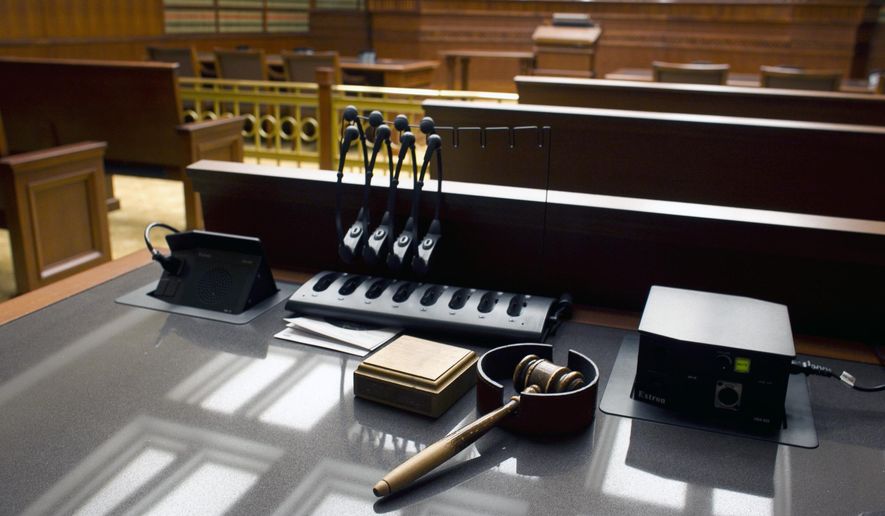A federal court ruled this month that an Arizona community college professor’s quiz about jihad and Islamic terrorism did not force a Muslim student to violate his faith.
The U.S. Court of Appeals for the 9th Circuit’s opinion highlights teachers’ immunity from liability over curriculum choices.
Student Mohamed Sabra and the Council on American-Islamic Relations of Arizona sued Maricopa County Community College District and professor Nicholas Damask over an Islamic terrorism lesson as part of a world politics class in 2020.
Mr. Sabra alleged that the lesson and a multiple choice quiz violated his religious rights by having him affirm something that is contrary to his faith. A lower court ruled against him.
A three-judge panel ruled 2-1 that the college did not have a practice or policy that ran afoul of the Free Exercise or Establishment Clause and that Mr. Damask was protected by qualified immunity, which shields government workers from civil liability lawsuits.
“Although Plaintiffs allege that Damask has taught his World Politics class for 24 years, they do not allege that the course in other years contained the same content that offended Sabra, or that Damask’s views or teaching methods are so persistent and widespread as to constitute part of the College District’s ‘standard operating procedure,’” the appeals court ruled.
Mr. Sabra said the lesson was “biased” and “distorted” Islam.
One of the multiple choice questions with which he took issue was “Where is terrorism encouraged in Islamic doctrine and law?” The correct answer was “the Medina verses,” but Mr. Sabra selected “terrorism is not encouraged in Islamic doctrine and law.”
Another question: “Terrorism is ____ in Islam.” Mr. Sabra answered “always forbidden,” but the correct answer was “justified within the context of jihad.”
The three-judge panel said the quiz wasn’t enough to violate his religious rights.
“We have never held that actions like the ones challenged in this case constitute a violation of the Establishment Clause or Free Exercise clause. Nor is this the exceptional case where the alleged constitutional violation is so obvious as to obviate the need for a case on point,” wrote Judge Richard Clifton, a Bush appointee.
He was joined by Judge Lawrence VanDyke, a Trump appointee.
Judge Daniel Bress, a Trump appointee, disagreed and chastised the curriculum.
“Although Sabra suffered no First Amendment injury through his mere exposure to inflammatory course materials, he may have suffered such an injury when, in connection with those disturbing materials, he was forced to answer black and white multiple-choice questions that he plausibly alleges required him to violate his religious beliefs on pain of receiving a lower grade,” wrote Judge Bress.
After learning of the quiz, the community college reached out to Mr. Sabra and gave him credit for his answers. It also apologized for any offensive content in the quiz.
After being contacted by Mr. Sabra about the questions, Mr. Damask told him in an email that the quiz was meant to portray what terrorists believe.
The college did not immediately respond to a request for comment.
Mr. Damask’s family faced threats after Mr. Sabra’s complaints went viral on Instagram. Eventually, the school apologized to the professor after his lawyers presented First Amendment arguments defending his teaching.
He’s still teaching at the school and continues to teach his lesson on Islamic terrorism.
“This is kind of a win for our civilization. Enough judges have said freedom of speech and academic freedom is important — that’s more important than submitting to someone being offended,” Mr. Damask told The Washington Times.
CAIR did not comment about whether it’s planning to appeal the panel’s decision.
Douglas Laycock, a law professor at the University of Virginia, said there is a fair amount of such lawsuits but courts tend to be deferential to schools.
“Courts have been terrified of becoming classroom supervisors and having to review course assignments and grade disputes that could arise without end,” Mr. Laycock said.
Robert Tuttle, a law professor at George Washington University, said the quiz was terrible but the professor didn’t clearly violate any laws.
“I don’t think this is a question of disrespect for Islam or for minority religions,” Mr. Tuttle said.
• Alex Swoyer can be reached at aswoyer@washingtontimes.com.




Please read our comment policy before commenting.